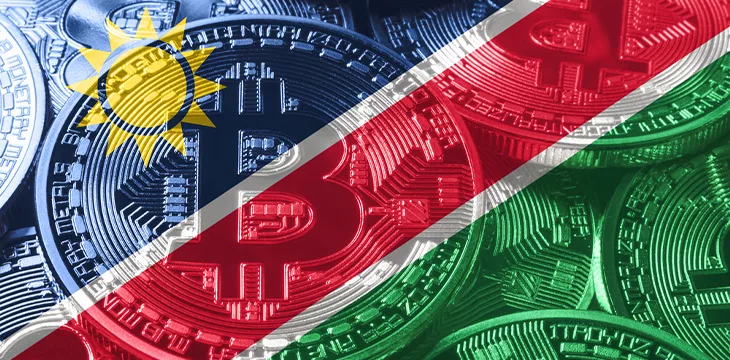|
Getting your Trinity Audio player ready...
|
Namibia has joined the group of nations floating legislation to regulate digital currency service providers following the passage of a new bill.
The bill was passed on June 22 after scaling the legislative hurdles of the National Assembly. According to the text, the bill establishes a new licensing regime for service providers and designates a regulatory authority to oversee the bourgeoning industry.
Under the law, the country’s finance minister has the power to appoint an entity or several entities to serve as the regulatory authority. The selected authority will have the ability to issue licenses to digital currency service providers, determine licensing fees and make additional rules for the industry.
The new law puts pressure on the operations of international service providers as it requires them to be incorporated in Namibia and have a registered office in the country. According to the law, firms that offer custodial services are expected to adhere to global best practices and ensure clear separation of client funds to avoid the commingling of assets.
Other provisions in the law include the requirement for licensed firms to make necessary disclosures to the regulator and to give notice before allotting any shares. The law provides details rules for classifying virtual tokens and initial token offerings.
Namibia’s parliament is also keen on standardizing digital asset promotion with the new rules containing advertisement guidelines.
Failure to comply with the provisions of the law will result in both criminal and civil liabilities. Principal members of erring firms may face up to 10 years in prison with the additional penalty of fines of over $600,000.
Despite the new law, the Bank of Namibia warns investors that digital currencies are not legal tender and carry with them several associated risks.
“In addition to the bank not recognizing virtual currencies as legal tender in Namibia, it also does not recognize it to be a foreign currency that can be exchanged for local currency,” read a 2017 policy paper. “This is because virtual currencies are neither issued nor guaranteed by a central bank nor backed by any commodity.”
Africa and digital assets
In the absence of rules guiding the operations of service providers, digital assets have seen impressive adoption in Africa. Nigeria, Ghana, Kenya, and South Africa rank highly in Chainalysis’ Global Crypto Adoption Index as individuals flock to the asset class to hedge their wealth from galloping inflation rates.
However, regulators on the continent have increased their activities in the space. In 2021, the Central Bank of Nigeria barred financial institutions from facilitating digital currency transactions.
CoinGeek Conversations with Catherine Lephoto: How blockchain is transforming health and education in Africa

 03-04-2026
03-04-2026 




